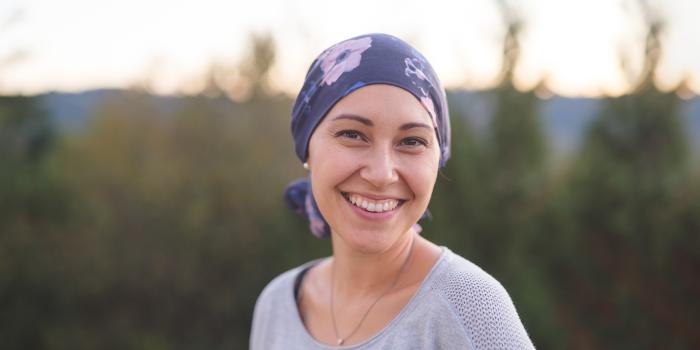Where Therapy Fits in Cancer Treatment
A cancer diagnosis comes with so many questions. We’re here to give you answers. Medicine is an effective, standard treatment in cancer therapy that targets and destroys cancer cells. At McGlinn Cancer Institute, our medical oncologists and hematologists work together with an entire team of specialty-trained surgeons, nurses, and other specialists to create a treatment plan that focuses on medical and biologic therapies.
Sometimes, medical therapy, such as chemotherapy, is combined with other treatments like radiation therapy and surgery. We will be by your side every step of the way, providing you with the best options to fight back.
Chemotherapy
Medicine is a powerful agent used in the fight to destroy cancer. We often use chemotherapy, a drug that works by stopping or slowing the growth of cancer cells. Not only is chemo used to treat cancer, but it can also help ease symptoms, since chemotherapy shrinks tumors that cause pain.
For some patients, chemotherapy is the only treatment used. For others, chemotherapy can help other treatments work better, or can be used after surgery to destroy any possible cells that remain. We will talk with you about your specific cancer, its stage, and any other health conditions you may have that will impact chemotherapy use.
There are several different types of chemotherapy and different ways this medicine is administered. These include:
- Oral. The chemotherapy comes in pills, liquids, or capsules that you will swallow.
- Intravenous (IV). Chemotherapy is administered directly into a vein.
- Injection. The chemotherapy is given by a shot, often in your arm, thigh, or hip.
- Intrathecal. We inject chemotherapy into the space between the layers of tissues that cover the brain and spinal cord.
- Intraperitoneal. The chemotherapy is delivered directly into the peritoneal cavity (organs such as your stomach and liver).
You can count on us to use the most current, evidence-based treatments, which include Hyperthermic Intraperitoneal Chemotherapy (HIPEC). It is used to treat abdominal cancers that have spread throughout the abdominal cavity. This type of chemotherapy uses heated chemo pumped directly into the abdomen after surgery.
Targeted Therapy
Targeted therapy is a type of cancer treatment that targets certain proteins on cancer cells that control how the cells grow and spread. Based on your type of cancer, our medical oncologists can test a cancer cell and its potential reaction to medicine. We test tumors to see if it contains targets and determine if there is medicine available to fight those targets.
Our specialists understand how DNA changes and certain proteins contribute to the growth of cancer cells. This allows us to design treatments that best target those proteins and stop or destroy the cells.
We use several different types of targeted therapies, including small-molecule drugs and monoclonal antibodies. These can be used on their own or combined with chemotherapy or radiation to improve effectiveness.
Immunotherapy
The immune system can detect and destroy abnormal cells and often can even slow the growth of cancer cells. But sometimes, cancer cells find ways to avoid the immune system. At McGlinn Cancer Institute, we can use immunotherapy to treat several cancers, including brain, cervical, breast, and bladder cancer. This type of treatment better helps your immune system fight cancer. Immunotherapy treatments we use include:
- Checkpoint inhibitors. They are used to interrupt and block cancer cells' signals so that different therapies can work.
- Treatment vaccines. Used to prevent certain conditions and treat certain cancers. They may include the HPV vaccine that targets the human papillomavirus strain linked to most cervical, throat, and anal cancers.
- Immune system modulators. These are used to improve the body’s immune response to fight cancer growth.
- Monoclonal antibodies. These therapeutic antibodies are proteins that bind to specific targets on cancer cells, so they are better seen by the immune system and can be destroyed.
Hormone Therapy
Using hormone therapy in the fight against cancer allows the body to slow or block the production of hormones and block how hormones interact and function. Hormone therapy is delivered throughout the body either orally, by injection, or surgically, and can be used with other treatments such as chemotherapy, radiation, or surgery.
Certain cancers can be treated by hormone therapy, including breast cancers, prostate cancer, and uterine cancer.


